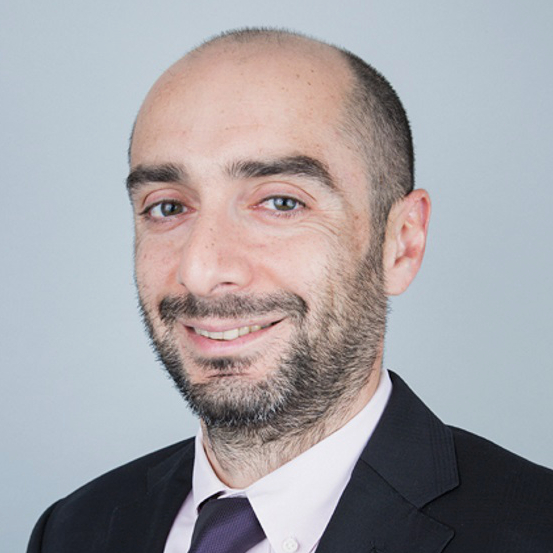Objectives
Electromagnetic waveguides and waveguide structures such as power dividers, directional couplers, etc. are commonly used to process millimeter-wave signals. However, due to the high wave velocity of electromagnetic waves, waveguides and waveguide structures become too large to be used at lower radio frequencies. On the other hand, the short wavelength of acoustic waves has led to the realization of compact acoustic filters and multiplexers at radio frequencies. The purpose of this work is to demonstrate acoustic waveguide and acoustic waveguide structures for processing radiofrequency signals.
Approach
Acoustic waveguides can be created analogous to electromagnetic waveguides by creating regions with different propagation velocities. The acoustic propagation velocity may be modified by creating regions with different mass density or by leveraging acousto-electric effects in piezoelectric material. Acousto-electric and thermoacoustic effects may be used to manipulate the acoustic wave velocity to create controllable waveguide structures such as variable phase shifters. We will investigate different materials such as silicon, LiNbO3, GaN, AlN, etc. and structures to realize compact low-loss waveguides and related structures.
Accomplishments
We have designed and simulated radiofrequency surface acoustic wave (SAW) waveguide structures such as straight waveguides, waveguide bends, power splitters, and directional couplers for fabrication in a LiNbO3 platform.
Team Leader
Hossein Hashemi (SM’08) received the B.S. and M.S. degrees in electronics engineering from the Sharif University of Technology, Tehran, Iran, in 1997 and 1999, respectively, and the M.S. and Ph.D. degrees in electrical engineering from the California Institute of Technology, Pasadena, CA, USA, in 2001 and 2003, respectively. In 2003, he joined the Ming Hsieh Department of Electrical Engineering–Electrophysics, University of Southern California (USC), Los Angeles, CA, USA, where he is currently a Professor, a Ming Hsieh Faculty Fellow, and the Co-Director of the Ming Hsieh Institute. His current research interests include electrical and optical integrated systems. Dr. Hashemi served as a Distinguished Lecturer of the IEEE Solid-State Circuits Society from 2013 to 2014. He was a member of the Technical Program Committee of the IEEE International Solid-State Circuits Conference from 2011 to 2015 and the IEEE Compound Semiconductor Integrated Circuits Symposium from 2010 to 2014. He has been a member of the IEEE Radio Frequency Integrated Circuits Symposium since 2011. He was a co-recipient of the 2016 Nokia Bells Labs Prize. He was a recipient of the 2015 IEEE Microwave Theory and Techniques Society Outstanding Young Engineer Award, the 2008 Defense Advanced Research Projects Agency Young Faculty Award, and the National Science Foundation Career Award. He was also a recipient of the USC Viterbi School of Engineering Junior Faculty Research Award in 2008, and was recognized as a Distinguished Scholar for Outstanding Achievement in Advancement of Engineering by the Association of Professors and Scholars of Iranian Heritage in 2011. He was a co-recipient of the 2004 IEEE Journal of Solid-state Circuits Best Paper Award for "A Fully Integrated 24-GHz 8-Element Phased-Array Receiver in Silicon" and the 2007 IEEE ISSCC Lewis Winner Award for Outstanding Paper for "A Fully Integrated 24-GHz 4-Channel Phased-Array Transceiver in 0.13-μm CMOS based on a Variable Phase Ring Oscillator and PLL Architecture." He was an Associate Editor of the IEEE Transactions on Circuits and Systems II: Express Briefs from 2004 to 2005 and the IEEE Transactions on Circuits and Systems I: Regular Papers from 2006 to 2007. He has been an Associate Editor of the IEEE Journal of Solid-state Circuits since 2013. He was a Guest Editor of the IEEE Journal of Solid-state Circuits in 2013. He is the Co-Editor of the books Millimeter-Wave Silicon Technology: 60 GHz and Beyond (Springer, 2008) and mm-Wave Silicon Power Amplifiers and Transmitters (Cambridge University Press, 2015).
Publications
Material pending.
